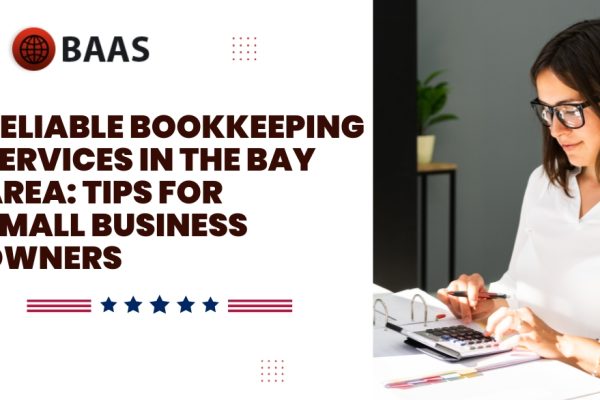Best Small Business Bookkeeping Practices for 2025: Save Time and Avoid Mistakes
Bookkeeping has evolved significantly in the last few years — and in 2025, efficiency, automation, and accuracy are the keys to success. For small business owners, proper bookkeeping isn’t just about balancing numbers; it’s about making smarter financial decisions, saving time, and staying compliant with tax laws.
In this article, we’ll cover the best small business bookkeeping practices for 2025, share the latest trends in automation, and show you how to avoid common bookkeeping mistakes that can cost your business time and money.
Why Bookkeeping Still Matters in 2025
Even with advanced accounting software, bookkeeping remains one of the most important aspects of running a successful business. Accurate books help you:
- Track revenue, expenses, and cash flow efficiently.
- File taxes correctly and on time.
- Make informed business decisions based on real data.
- Build credibility with lenders and investors.
Good bookkeeping is not just about compliance — it’s about clarity, control, and confidence in your business’s financial health.
1. Go Digital with Cloud-Based Bookkeeping Tools
In 2025, small businesses are shifting from spreadsheets to cloud-based accounting systems. Tools like QuickBooks Online, Xero, and FreshBooks automate much of the manual work.
Benefits of digital bookkeeping:
- Access your financial data anytime, anywhere.
- Automatically import and categorize transactions.
- Share books securely with your accountant or team.
- Generate instant reports for faster decision-making.
Cloud bookkeeping also provides data security and reduces the risk of losing important financial information.
2. Keep Personal and Business Finances Separate
Mixing personal and business finances is one of the biggest mistakes small business owners make. It complicates tax filing and makes it harder to track true business performance.
Best practice:
- Open a dedicated business bank account.
- Use a business credit card for expenses.
- Pay yourself a salary or draw, instead of using personal funds.
By keeping accounts separate, you’ll simplify record-keeping and protect your business legally.
3. Automate Repetitive Bookkeeping Tasks
Automation is changing how small businesses manage their books. In 2025, you can automate:
- Expense tracking with tools like Dext or Hubdoc.
- Bank reconciliation using QuickBooks or Xero.
- Invoice reminders, payment tracking, and payroll.
Automation reduces errors, saves hours every month, and helps you focus on strategic financial decisions instead of manual data entry.
4. Track Expenses and Review Financial Reports Regularly
Consistent tracking and review are vital to avoiding surprises. Review your books weekly or monthly to:
- Catch any unusual transactions early.
- Ensure bills and payroll are paid on time.
- Monitor profit margins and cash flow trends.
Use your software’s dashboard to check Profit & Loss, Balance Sheet, and Cash Flow statements regularly. This keeps your financial strategy aligned with your business goals.
5. Work with a Professional Bookkeeper
Even with the best software, a professional bookkeeper brings accuracy and experience you can’t automate. They can:
- Prepare tax-ready financial reports.
- Reconcile accounts efficiently.
- Ensure compliance with local and federal laws.
- Provide insights for cost-saving and growth.
If your business is growing, outsourcing bookkeeping to a trusted partner saves time and reduces stress during tax season.
6. Maintain Accurate Records for Tax Season
Organized records are essential for smooth and stress-free tax filing. Keep a clear record of:
- Receipts, invoices, and expense reports
- Bank and credit card statements
- Payroll and contractor payments
- Tax filings and correspondence
Digital filing systems make it easy to store and retrieve documents when needed — and help you stay compliant with state and IRS requirements.
7. Common Bookkeeping Mistakes to Avoid in 2025
- Avoiding mistakes is just as important as following best practices. The most common bookkeeping errors include:
- Mixing personal and business transactions
- Forgetting to reconcile bank accounts monthly
- Losing receipts and expense proofs
- Ignoring unpaid invoices
- Waiting until tax season to organize records
By avoiding these mistakes, you’ll ensure smoother audits and more accurate financial statements.
FAQs About Small Business Bookkeeping
1. What are the best bookkeeping tools for small businesses in 2025?
The top tools in 2025 are QuickBooks Online, Xero, Zoho Books, and Wave Accounting. These platforms automate most bookkeeping tasks, integrate with your bank, and offer secure cloud access.
2. How often should I update my bookkeeping records?
Ideally, review and update your records weekly. Regular updates prevent errors and make end-of-month and year-end reporting much easier.
3. Is outsourcing bookkeeping a good idea for small businesses?
Yes. Outsourcing is cost-effective and ensures accuracy. Professional bookkeepers handle reconciliation, reporting, and compliance — allowing you to focus on business growth.
4. How can I reduce bookkeeping errors?
To minimize mistakes:
- Use reliable accounting software
- Automate data entry
- Reconcile accounts monthly
- Schedule regular reviews with your bookkeeper
These steps improve accuracy and help prevent costly financial errors.
5. What are the key bookkeeping trends in 2025?
The biggest bookkeeping trends for 2025 include automation, AI-assisted data entry, integration with payment systems, and real-time financial dashboards. Businesses that embrace these tools gain faster insights and better financial control.
Conclusion
The best small business bookkeeping practices for 2025 revolve around automation, consistency, and accuracy. By leveraging cloud tools, staying organized, and working with professionals, small business owners can save time, avoid mistakes, and make smarter financial decisions.
If you’re ready to simplify your bookkeeping process and focus on growing your business, our experts can help.
Contact Bay Area Accounting Solutions today for personalized bookkeeping, payroll, and accounting services that keep your finances in perfect order — all year long.




